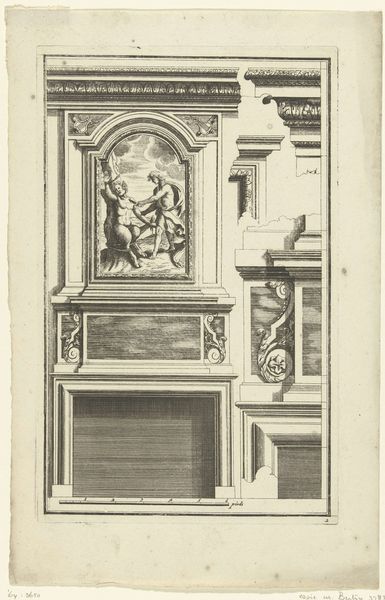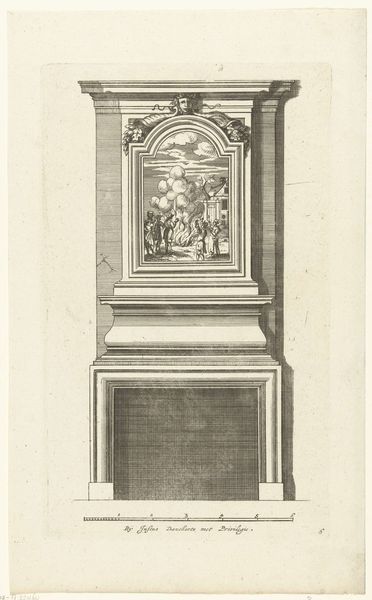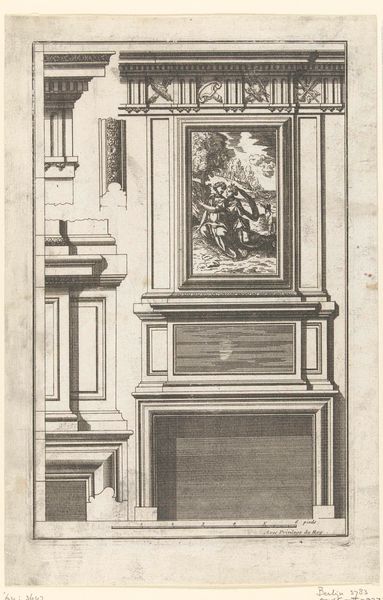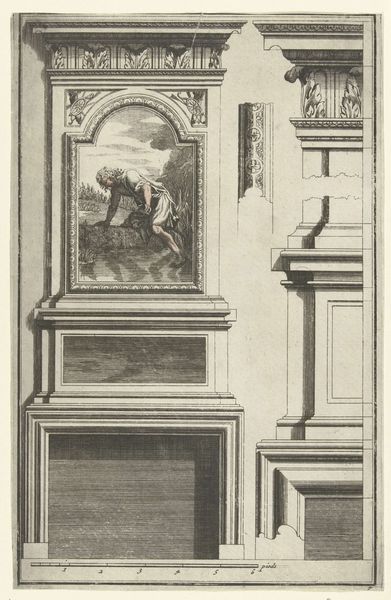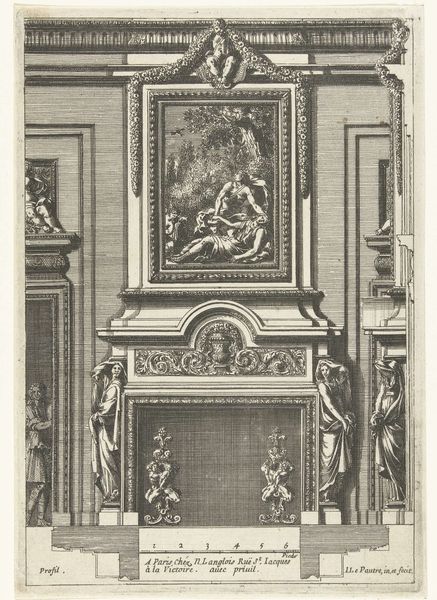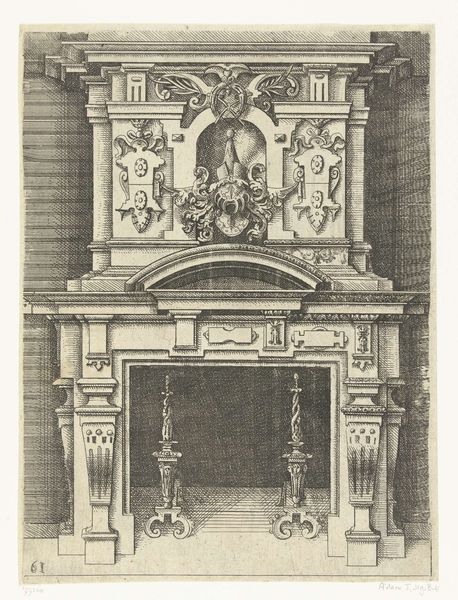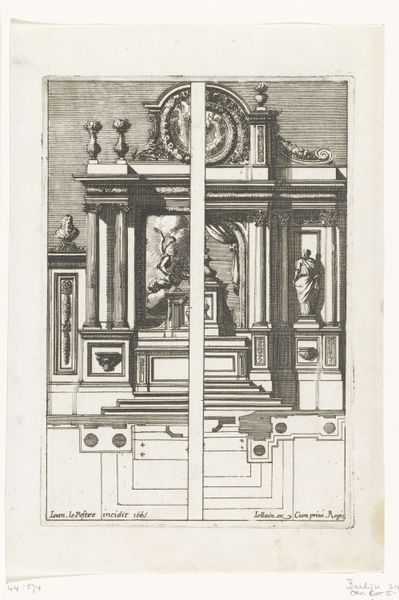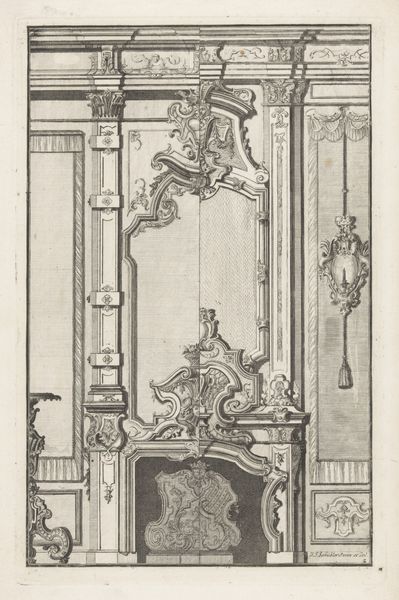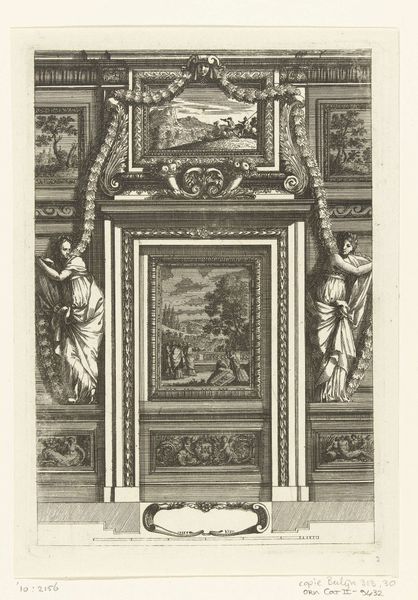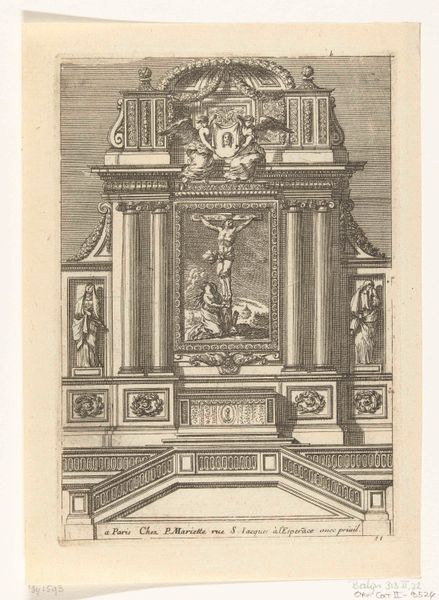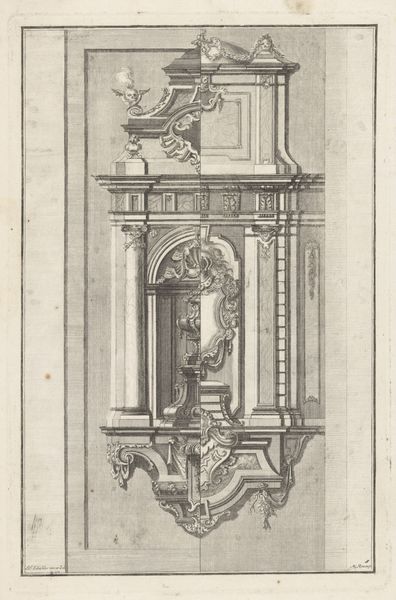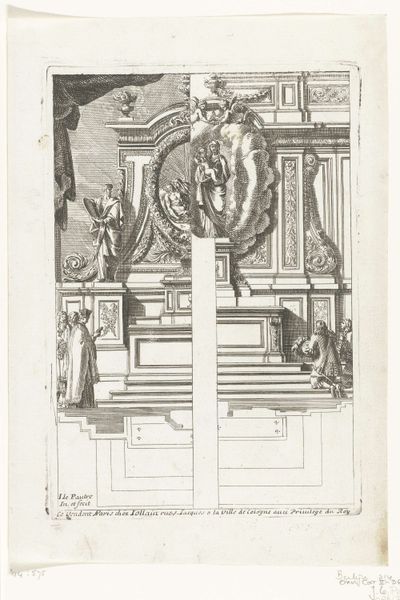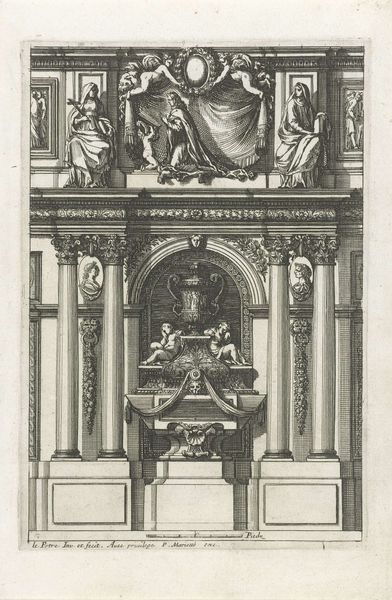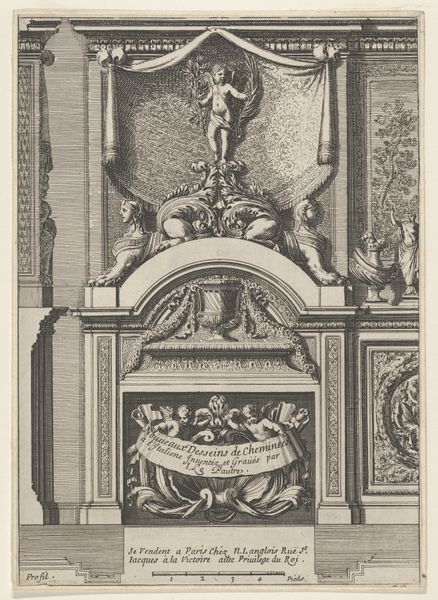
drawing, print, etching, engraving
#
drawing
#
baroque
# print
#
etching
#
etching
#
line
#
history-painting
#
engraving
Dimensions: height 264 mm, width 166 mm
Copyright: Rijks Museum: Open Domain
Editor: So, this is "Onderboezem met schilderij van Apollo en Marsyas," made between 1632 and 1693 by François de Poilly. It’s an etching and engraving. The detail is incredible; you can almost feel the texture of the stonework. What's your interpretation of the relationship between the architectural rendering and the scene depicted? Curator: I think what's compelling here is understanding the role of the print as a form of public knowledge. It offers insight into the tastes and social structures of the Baroque era. This print isn’t just an image of a mantelpiece, but a design circulating within elite circles, shaping perceptions of wealth and classical education. Editor: That's fascinating. How would something like this function in its time? Was it purely decorative? Curator: Certainly not purely decorative. Consider the narrative choice: Apollo flaying Marsyas alive after losing a musical contest. This wasn't just aesthetic; it was didactic. Think about how this imagery promoted ideals about divinely ordained power. How do you think these spaces influenced behaviour or social interactions within the aristocracy? Editor: It makes you wonder about the conversations happening around such a loaded symbol displayed so prominently in a home. It feels like more than just a design choice. It shows power! Curator: Precisely! This piece provides tangible insights into art's power within a specific historical and political context. I was interested to note your intitial visceral reaction; it's an opening for discussion on a range of cultural topics. Editor: I hadn’t really thought about it as having so much influence! I'm used to seeing art just as, well, art, but this definitely shows how embedded it is in social dynamics. Curator: Exactly! Hopefully, it shifts how you look at images within a broader historical conversation about art, power, and public perception.
Comments
No comments
Be the first to comment and join the conversation on the ultimate creative platform.
